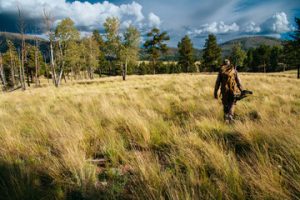Hunter’s Blog: Expert Tips, Gear Essentials, and Strategies for Every Season
Hunting is more than a sport—it’s a tradition, a skill, and a way to connect with nature. Whether you’re a seasoned hunter or just starting out, having access to practical tips and proven strategies can make all the difference in the field. This guide explores essential gear, preparation techniques, and best practices that every hunter should know before heading out.
Understanding the Basics of Successful Hunting
Before diving into advanced strategies, it’s important to master the fundamentals. Hunting requires patience, precision, and awareness of both the environment and animal behavior. Key elements include understanding local regulations, selecting the right equipment, and prioritizing safety at all times.

Researching hunting seasons and legal requirements is critical. Many regions have strict guidelines regarding bag limits, licensing, and permitted equipment. Following these rules not only ensures compliance but also promotes conservation and sustainable wildlife management.
Essential Gear for Every Hunter
The right gear can determine whether a hunting trip is successful or frustrating. Here are some must-have items every hunter should consider:
- Firearms or Bows: Select a weapon suited to the game you’re pursuing. Ensure it’s properly maintained and zeroed for accuracy.
- Ammunition or Arrows: Bring enough for the hunt, and always store them safely.
- Clothing and Footwear: Weather-appropriate, camouflage-patterned clothing helps with concealment and comfort. Waterproof boots with good traction are essential for rugged terrain.
- Backpack and Essentials: Pack water, snacks, a first-aid kit, and navigation tools such as a GPS device or compass.
- Binoculars and Rangefinder: These tools improve accuracy by helping you gauge distance and identify targets clearly.
High-quality gear not only enhances performance but also contributes to safety and ethical hunting practices.
Pre-Season Preparation: Scouting and Practice
Preparation is the key to success in hunting. Experienced hunters often spend weeks or even months scouting their chosen area before the season opens. This includes:
- Identifying Game Trails: Look for tracks, bedding areas, and feeding spots to determine animal movement patterns.
- Checking Wind Direction: Understanding how wind affects scent can help position yourself effectively.
- Trail Cameras: Placing cameras in strategic locations provides valuable insight into animal activity without disturbing the area.
In addition to scouting, regular practice is essential. Whether using a firearm or bow, consistent target practice builds muscle memory and improves accuracy under real hunting conditions.

Strategies for Different Seasons
Hunting strategies often vary depending on the season and type of game. Here are some general approaches:
- Early Season: Focus on feeding areas where animals are predictable and less pressured.
- Mid-Season: Increased hunting pressure makes animals more cautious. Use stealth and consider hunting during off-peak times.
- Late Season: Cold weather and scarce food sources drive animals to specific locations, making tracking and patience vital.
Adapting to seasonal changes not only increases your chances of success but also provides a more rewarding experience in the field.
Importance of Safety and Ethics
Hunting responsibly ensures that the sport remains sustainable for future generations. Always prioritize safety by wearing appropriate gear, following firearm handling protocols, and communicating your location to someone before heading out.
Ethical hunting means taking clean, humane shots and respecting bag limits. It also includes respecting the land by minimizing impact, properly disposing of waste, and leaving natural habitats undisturbed.
Staying Informed and Improving Skills
Continuous learning is a hallmark of skilled hunters. Reading field guides, attending workshops, and engaging with other hunters online or through local clubs can provide new perspectives and techniques. Modern technology, such as mobile apps for mapping and weather tracking, also helps hunters plan efficiently and stay safe.
Keeping a hunting journal is another valuable practice. Recording details about weather, animal sightings, and successful techniques helps refine strategies for future seasons. Over time, these notes become an invaluable resource for improving consistency and success rates.
